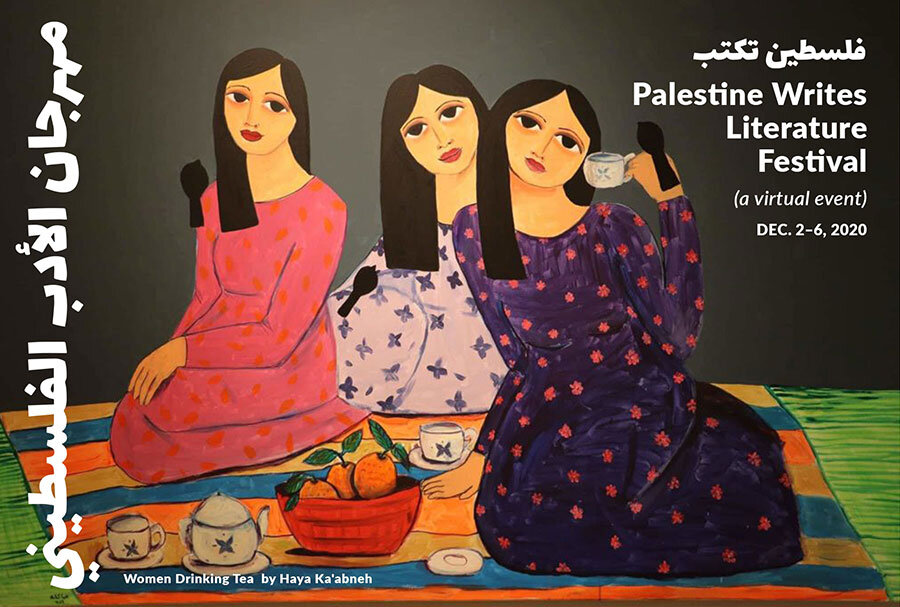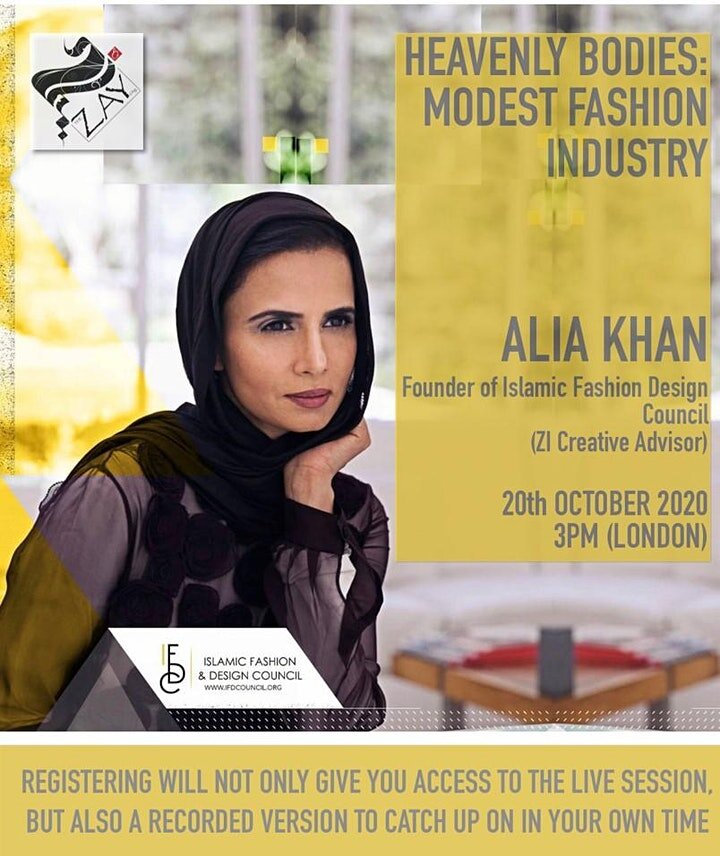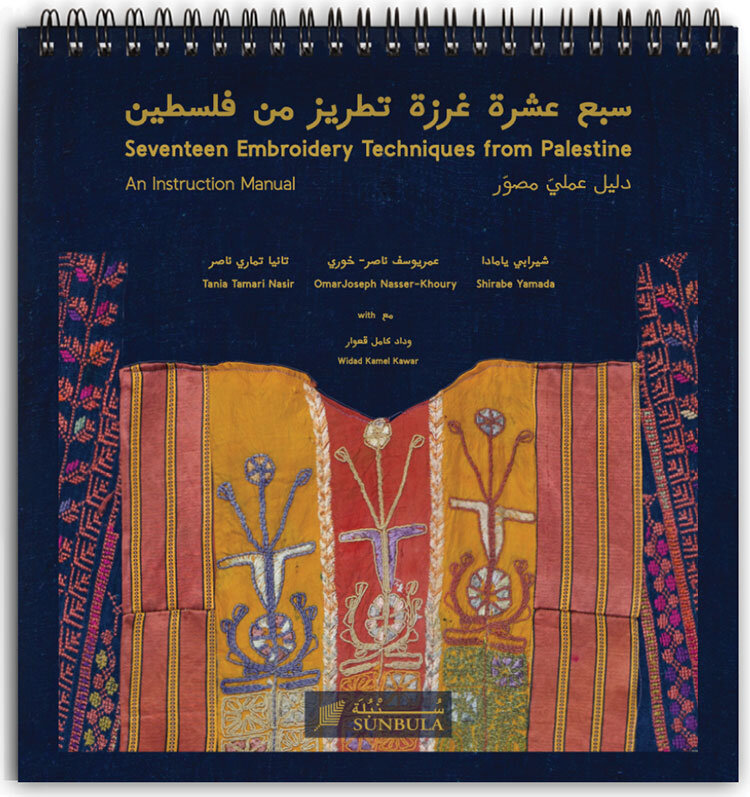Malu Halasa
Dialogues on the Art of Arab Fashion:
Heavenly Bodies: Modest Fashion Industry
at the Zay Initiative
Tuesday, October 20
TIME: 3:00 pm – 4:00 pm GMT +1
Exploring new designers, trends and developments in Islamic fashion worldwide, Alia Khan from the Islamic Fashion Design Council talks with Dr. Reem El Mutwalli, who continues her “on the sofa” conversations for the Zay Initiative. The Initiative’s collection of traditional dresses and historic attire, which can be accessed online, comes from rural as well as ruling families in the U.A.E. and other Middle Eastern countries. On November 3, Dr. Mutwalli will be joined by Dr. Lina Abirafeh from the Arab Institute for Women at the Lebanese American University for a discussion on the art of Arab fashion, Arab women and stereotypes (registration for the talk TBA). Cosponsored by the Barakat Trust which supports and promotes :the study and preservation of Islamic art, heritage, architecture and culture for future generations.”
Free, click for tickets.
Friday, October 23 After the performance there will be a conversation with the artists. Kinan Abou-afach is a Syrian-born cellist and composer and recipient of the 2013 Pew Fellowship in the Arts. As a composer, Abou-afach crafts music that is saturated with unique scales, rhythmic grooves, and improvisation-esque progressions. His works are influenced by Eastern and Western traditions. Shinjoo Cho is a pianist, bandoneonist, and accordionist, both a solo and chamber musician embodying many musical traditions. She has collaborated with international musicians and artists and has performed in prestigious concert halls and theaters throughout the U.S., Canada, her native Korea, and South America. Hafez Kotain is a master percussionist fluent in both Arab and Latin rhythms–a fluency he honed in his native countries of Syria and Venezuela. In 2013 he received a Pew Fellowship in the Arts, a prestigious award given to Philadelphia artists of exemplary talent. Born in Venezuela of Syrian heritage, he grew up in Syria until the age of 16 years. Tickets $10, available here. Podcast from Asia House +44 (0) 20 7307 5454 Salma Tuqan, the deputy director of the Delfina Foundation and a former contemporary Middle East curator at the London’s Victoria & Albert Museum, discusses “the challenge of crisis” that has historically faced Middle Eastern artists, and remains with them today. It is a challenge that has taken the form of conflict, occupation and war, or, in the case of Beirut’s recent port explosion, ineptitude and corruption. The podcast, which provides an overview of arts and culture in Lebanon, Palestine and Jordan, is part of the Arts and Learning Series at Asia House. Other online initiatives from the institute, such as Asia House TV, offer programs, performances and discussions on the arts and beyond. As the second corona virus wave once again threatens the most vulnerable, the interview with the L.A.-based artist Nour Mobarak and her album, Father Fugues is timely. For years the sound and performance artist has been visiting her ailing father in a nursing home in the mountains of Lebanon. Jean Mobarak is a polyglot with a short-term memory that lasts no longer than 30 seconds. His daughter recorded their fragmented conversations in Arabic, English, French and Italian and added improvised singing. The album comes with a transcription and translation of a libretto for Father Fugues. Poetic and at times strange, it is an encounter that explores memory, language and the human voice across the generations. On October 30, an exclusive session between Nour Mobarak and Berlin-based sound artist and composer Jessica Ekomane will be broadcast on BBC Radio 3 Late Junction. Luxor, written and directed by Zeina Durra, struck a chord with UN and other aid organizations that work on the ground in war-torn countries. Hana, a doctor and British aid worker (played by Andrea Riseborough) leaves treating the wounded on the Syrian-Jordanian border and goes to Luxor to recoup. She had lived in the city in her twenties, and her meditative walks around magnificent temples and burial chambers make the movie perfect second-wave lockdown entertainment. An unexpected meeting with an old beau (played by Lebanese actor Karim Saleh from Ridley Scott’s Kingdom of Heaven and Steven Spielberg’s Munich) adds to Hana’s struggle to reconcile the choices of the past with the uncertainty of the present. Film director Durra, of British/Jordanian and Palestinian/Bosnian descent, spoke about Hana’s trauma last month at a UN Assembly event in London. To avoid clichés of exoticism and orientalism in her portrayal of Luxor, she included in the film archaeologists who live and work there, like Salima Ikran. MARSM, which means “easel” in Arabic, hosts a monthly Music Elevator podcast, alongside Friday Night Party Playlists and monthly featured film double-bill, all by independent musicians and artists from the Arabic-speaking world. This Music Elevator, on October 21, features psychedelic Arabic jazz trumpeter Yazz Ahmed on her childhood in Bahrain; cycling in the desert; and her albums La Saboteuse and Polyhymnia. The latest MARSM Playlist, on YouTube, was curated by Sudanese singer, activist and reluctant ethnomusicologist Alsarah, who plays Sudanese pop and اغاني البنات (aghani albanat), which includes folk music made and performed by women at weddings, social gatherings and circumcisions. Born in Khartoum, Alsarah is a practitioner of “East-African Retro-Pop” and has released two albums, Silt and Manara, with her band, Alsarah and the Nubatones. Latest podcast. Art Film For the State of Calmness, by Iran’s best-known photographer, Newsha Tavakolian, sheds light on topics not usually addressed in the wider world, let alone in the Islamic Republic—PMS, premenstrual syndrome, and PMDD, a more severe, premenstrual dysphoric disorder. Described in Field Notes, by Tavakolian’s agency Magnum, the film is “unnerving, coded, intense, and at times almost spectral …” It is narrated by Tavakolian and informed by interviews she did with more than 100 women. “While the nature of my work is that it often starts out in the personal realm”, she explained, “I always want to connect it to the world we are living in. As I got to understand the feeling of PMS more, I also found it to be a metaphor for the complex times we live in globally … Mother Earth is on PMS. Being based in Iran, I found that this country too, with all its issues, is suffering from PMS.” For the State of Calmness opened earlier this month at the Argo Factory in Tehran, and will be exhibited next January at the Thomas Erben gallery, in New York. Pages, a bilingual Farsi and English magazine, relaunches with its issue, Inhale. The pioneering arts and architecture publication was started by Nasrin Tabatabai and Babak Afrassiabi in 2004. By the mid 2010s, Pages became a project-led art space. Now the magazine is again available online. Its debut issue confronts a new decade, with pertinent questions: “Why is it that certain substances insert themselves more permanently into history than others? What is this persistence that they use to permeate history and then never let go?” The subject in this case, however, is not the topical virus, but rather opium, as is vividly described in articles like “Of Junk and Time: Trauma, Habit, Capitalism” by Mohammad-Ali Rahebi. Rediscovered during lockdown: This hands-on manual, in Arabic and English, catalogs a wide range of techniques used in the dressmaking of historic Palestine, with the aim of reviving stitches that have fallen out of use, such as tahriri (couching) and manajel (binding). Accompanying the step-by-step illustrations is background information on stitch design and usage that were collected from older, traditional embroiderers in Palestine and the diaspora. For Seventeen Embroidery Techniques from Palestine, the fair-trade organization Sunbala worked with co-editor OmarJoseph Nasser-Khoury, a Palestinian clothes designer and artist. A critical voice on both Palestinian embroidery and Israel, he recently wrote in Counterpunch, “Embroidery from Palestine has deep, personal, and collective roots as well as individual meaning that is imbued with explicit cultural, political and activist traditions since 1948.” Cost: $40.00 (USD) December 2–6 The five-day festival of virtual readings, talks, performances and art exhibitions showcases “living voices celebrating Palestinian life, devoted to the belief that art challenges repression and creates bonds between Palestine and the rest of the world.” A wide-ranging list of speakers, from fiction and film to publishing to radicalism, including Mai Masri, Randa Jarrar, Hanan Ashrawi and Angela Davis, among many others. Poetry, music, cooking, even networking are listed as events; the specifics of the programme will be announced in late November. Palestine Writes Awards will also be given to Arab artists and writers on the occasion of the festival’s cultural solidarity. Free with donation. Register here.

Philadelphia’s Al Bustan Seeds of Culture presents Crossing Genres, an online concert
Time: 19:30 – 21:00 EST
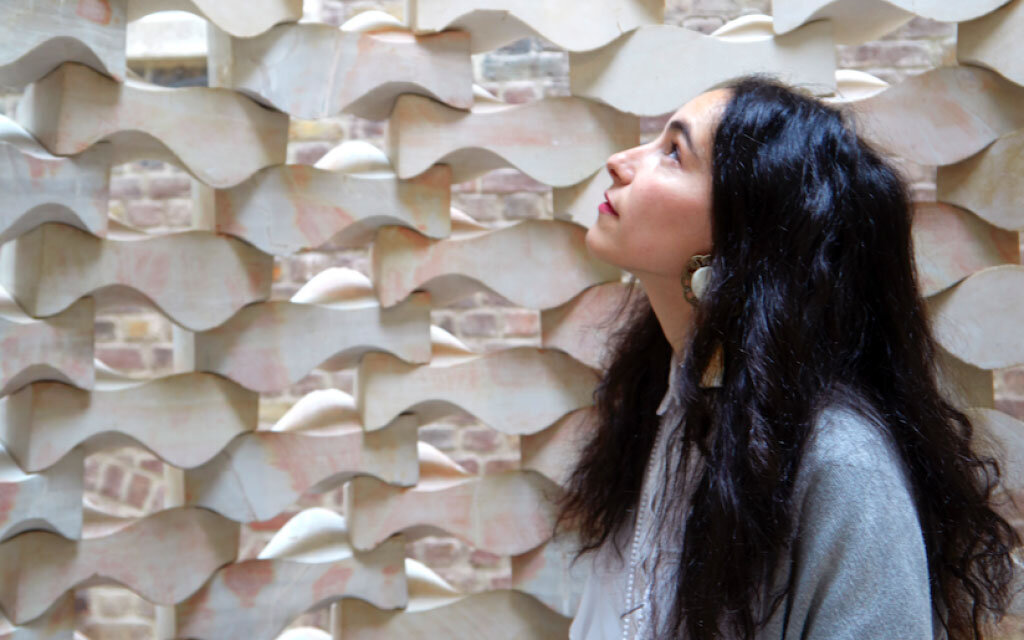
Arts in Isolation Podcasts Season 2 Episode 1:
Cultural Resilience in a Changing World with Salma Tuqan
63 New Cavendish St.
London W1G 7LP
enquiries@asiahouse.co.uk
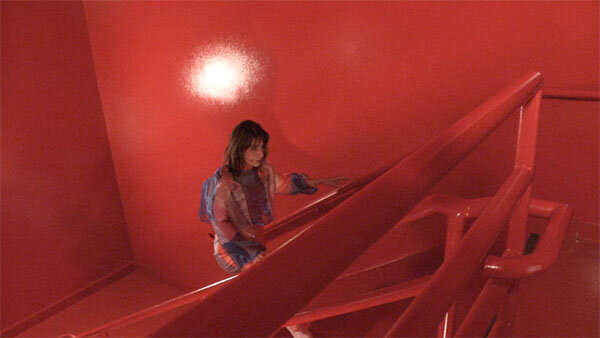
Nour Mobarak: An Album and Conversation
Global release of Luxor, a new feature film by Zeina Durra, available in Ireland and the UK from November 6
and in the US from December on Samuel Goldwyn VOD.
MARSM’s Music Elevator podcast, Friday night parties and monthly films
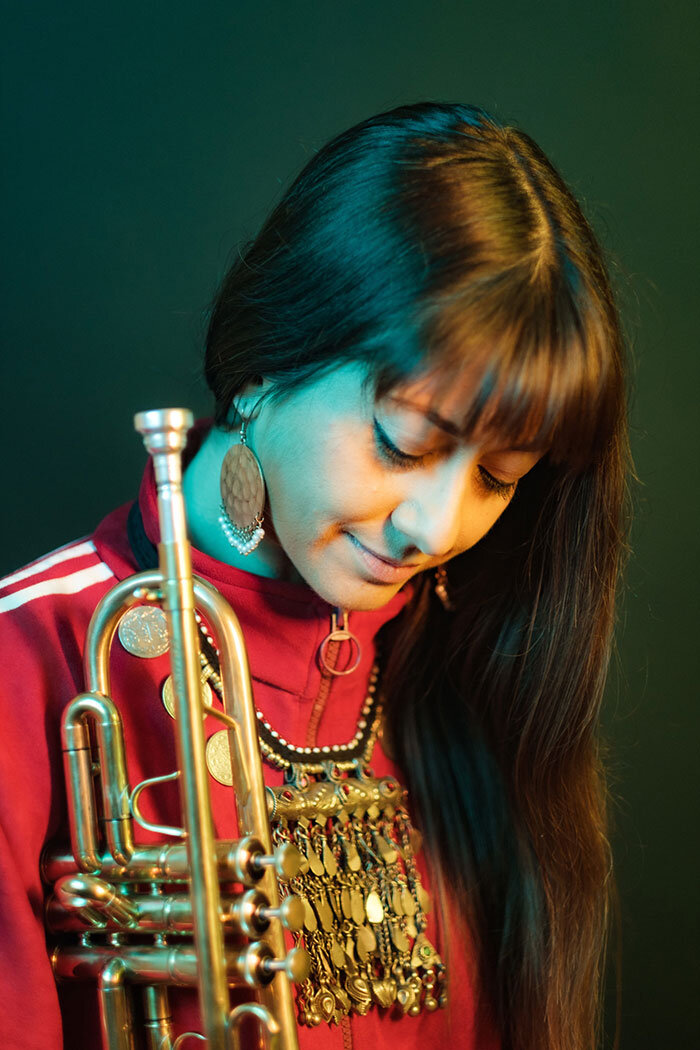
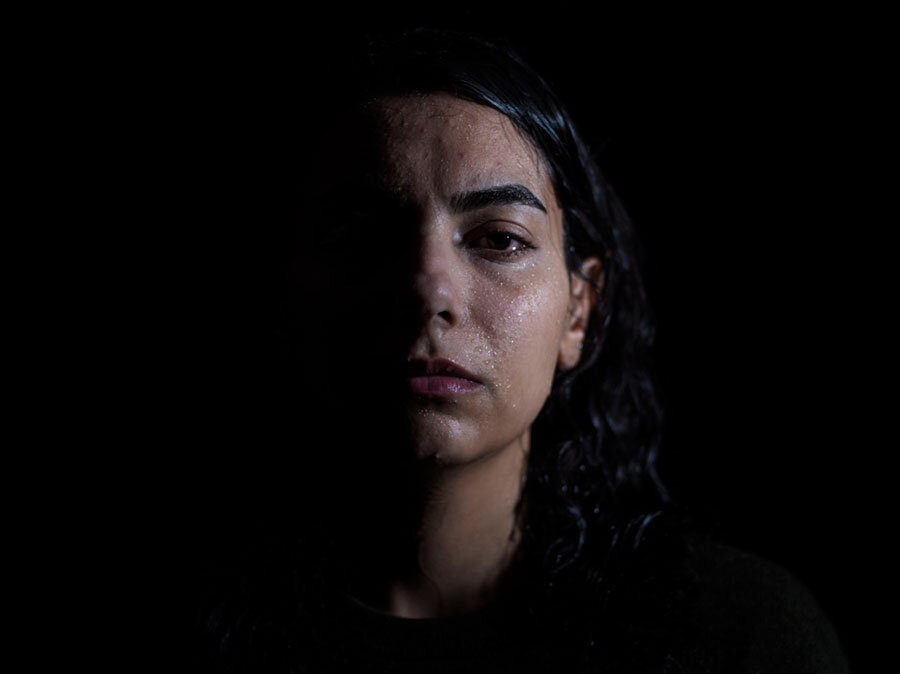
Newsha Tavakolian
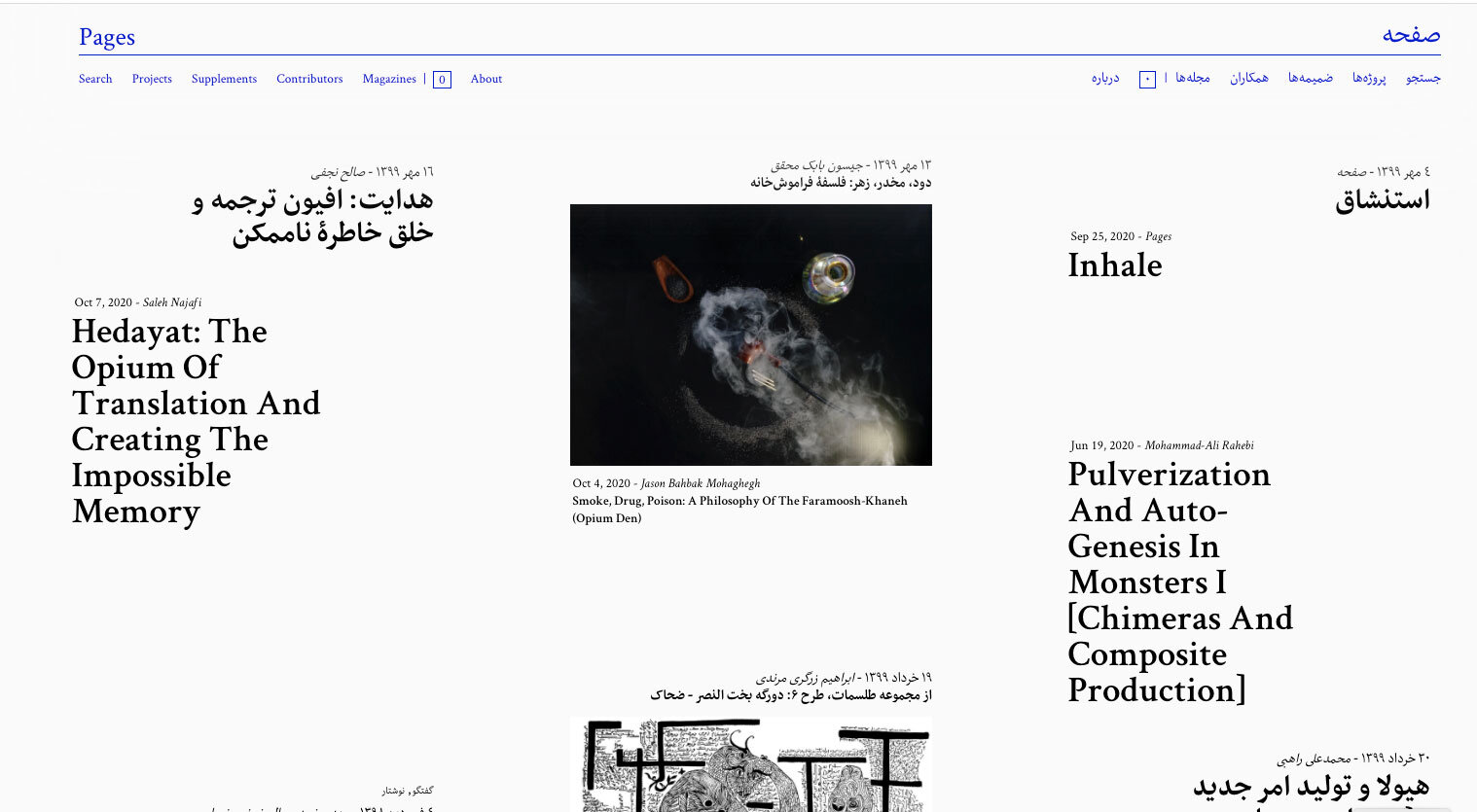
Pages
Seventeen Embroidery Techniques from Palestine: An Instruction Manual
Palestine Writes Literature Festival



